
Howrah: The Heartbeat of Kolkata's Heritage
Howrah, a bustling neighbourhood on the western bank of the Hooghly River, is an essential destination for anyone visiting Kolkata. Known for its iconic Howrah Bridge, this area is a blend of history, culture, and modernity that offers a captivating glimpse into the lifeblood of the city. The Howrah Bridge, also known as Rabindra Setu, is an engineering marvel and one of the busiest cantilever bridges in the world. Walking across this bridge, you will be treated to breathtaking views of the Hooghly River and the Kolkata skyline. As you stroll, take in the vibrant atmosphere filled with the sounds of honking vehicles, the calls of vendors, and the sight of locals going about their daily lives. For a deeper dive into history, visit the Howrah Railway Station, one of India's oldest and largest railway complexes. The station's colonial architecture and bustling platforms offer a nostalgic journey back in time. Nearby, the Howrah Municipal Corporation offers another taste of the region's rich colonial past, with its grandiose building and lush gardens. Nature enthusiasts will enjoy a visit to the Botanical Gardens, home to the famous Great Banyan Tree, which is over 250 years old. The gardens offer a tranquil retreat from the hustle and bustle, with expansive lawns, serene ponds, and a diverse collection of flora. Howrah is also known for its vibrant local markets. The Howrah Fish Market is a sensory overload of sights, sounds, and smells, offering an authentic slice of local life. Here, you can see fishermen bringing in their fresh catch of the day and locals haggling over prices. Food lovers will relish the street food scene in Howrah. From spicy jhal muri to sweet rasgullas, the local delicacies are a treat for the taste buds. Be sure to try the famous Howrah Phuchkas, a local version of pani puri, which are small, hollow puris filled with tangy tamarind water and spicy mashed potatoes. Whether you're a history buff, a nature lover, or a foodie, Howrah offers something for everyone, making it a must-visit neighbourhood in Kolkata.
Local tips in Howrah
- Visit early in the morning to experience the Howrah Bridge with fewer crowds and to see the sunrise over the Hooghly River.
- Wear comfortable walking shoes as the neighbourhood is best explored on foot, and some areas can be crowded and uneven.
- Carry cash, as many local vendors and markets do not accept credit or debit cards.
- Try to visit the Botanical Gardens during weekdays to avoid weekend crowds.
- Be cautious with street food; ensure it's from a reputable vendor to avoid any health issues.
Howrah: The Heartbeat of Kolkata's Heritage
Howrah, a bustling neighbourhood on the western bank of the Hooghly River, is an essential destination for anyone visiting Kolkata. Known for its iconic Howrah Bridge, this area is a blend of history, culture, and modernity that offers a captivating glimpse into the lifeblood of the city. The Howrah Bridge, also known as Rabindra Setu, is an engineering marvel and one of the busiest cantilever bridges in the world. Walking across this bridge, you will be treated to breathtaking views of the Hooghly River and the Kolkata skyline. As you stroll, take in the vibrant atmosphere filled with the sounds of honking vehicles, the calls of vendors, and the sight of locals going about their daily lives. For a deeper dive into history, visit the Howrah Railway Station, one of India's oldest and largest railway complexes. The station's colonial architecture and bustling platforms offer a nostalgic journey back in time. Nearby, the Howrah Municipal Corporation offers another taste of the region's rich colonial past, with its grandiose building and lush gardens. Nature enthusiasts will enjoy a visit to the Botanical Gardens, home to the famous Great Banyan Tree, which is over 250 years old. The gardens offer a tranquil retreat from the hustle and bustle, with expansive lawns, serene ponds, and a diverse collection of flora. Howrah is also known for its vibrant local markets. The Howrah Fish Market is a sensory overload of sights, sounds, and smells, offering an authentic slice of local life. Here, you can see fishermen bringing in their fresh catch of the day and locals haggling over prices. Food lovers will relish the street food scene in Howrah. From spicy jhal muri to sweet rasgullas, the local delicacies are a treat for the taste buds. Be sure to try the famous Howrah Phuchkas, a local version of pani puri, which are small, hollow puris filled with tangy tamarind water and spicy mashed potatoes. Whether you're a history buff, a nature lover, or a foodie, Howrah offers something for everyone, making it a must-visit neighbourhood in Kolkata.
Iconic landmarks you can’t miss
Howrah Bridge
Experience the iconic Howrah Bridge, a marvel of engineering and a cultural symbol of Kolkata, offering stunning views and vibrant surroundings.
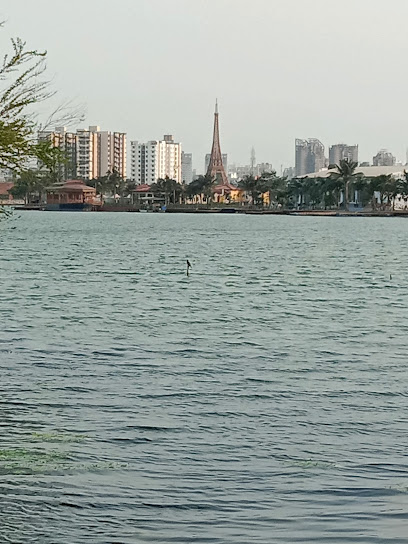
James Prinsep Monument
Explore the historical charm of James Prinsep Monument, a serene landmark in Kolkata's Maidan showcasing colonial architecture and rich cultural heritage.
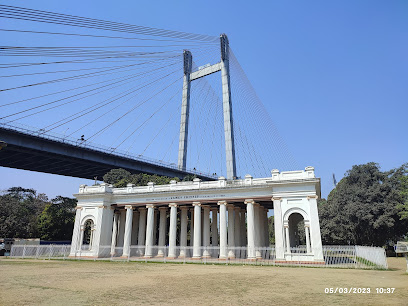
Belilious Park
Discover the tranquility of Belilious Park, a lush green escape in Howrah, perfect for leisurely strolls, picnics, and cultural events.
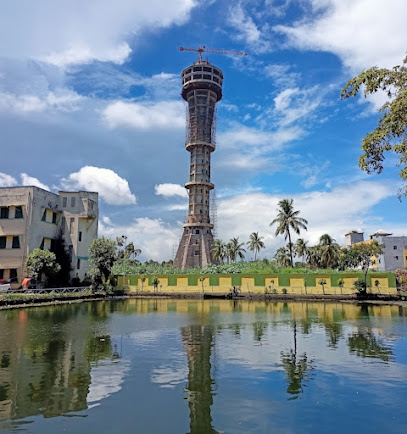
Rail Museum, Howrah
Discover India's rich railway heritage at the Rail Museum in Howrah, featuring vintage locomotives, interactive exhibits, and delightful toy train rides.
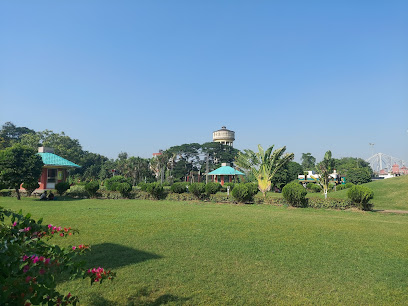
Andul Rajbari
Explore the grandeur of Andul Rajbari, a majestic historical landmark in Howrah, showcasing the rich cultural heritage of Bengal's royal past.
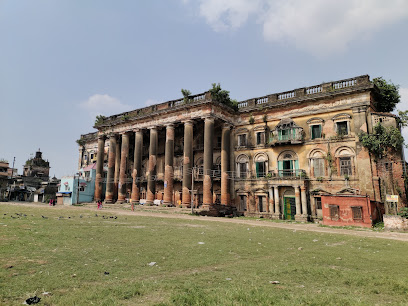
The Great Banyan Tree
Explore the Great Banyan Tree in Howrah, West Bengal - a breathtaking historical landmark and nature's living masterpiece.
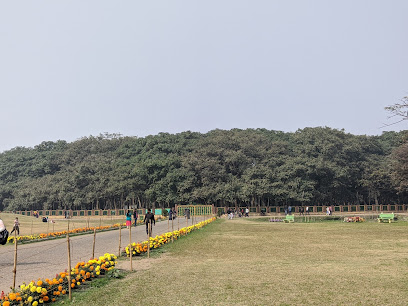
Vidyasagar Setu
Explore the architectural beauty of Vidyasagar Setu, the gateway between Kolkata and Howrah, with stunning views of the Hooghly River.

High Mast Indian National Flag
Experience the pride of India at the High Mast Indian National Flag, a towering symbol of unity and culture near Howrah Railway Station.
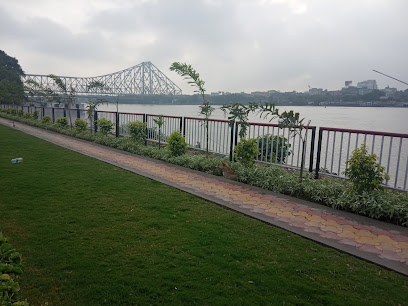
Howrah
Experience the spirit of Kolkata at Howrah, home to the iconic Howrah Bridge and vibrant local culture, a must-visit for all travelers.
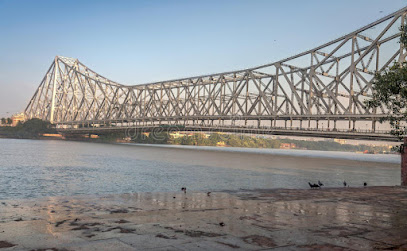
HinduTemple
Find serenity and spiritual solace at this welcoming Hindu temple in the heart of Howrah, open daily for prayer and reflection.
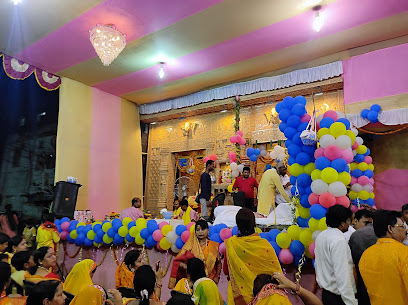
Unmissable attractions to see
Howrah Bridge
Discover the Howrah Bridge, a breathtaking architectural wonder in Kolkata, connecting two vibrant cities with stunning views and rich cultural experiences.
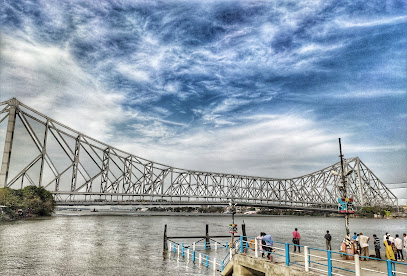
Big Watch
Discover the historical significance and architectural beauty of Howrah's Big Watch, a must-see landmark for every traveler.
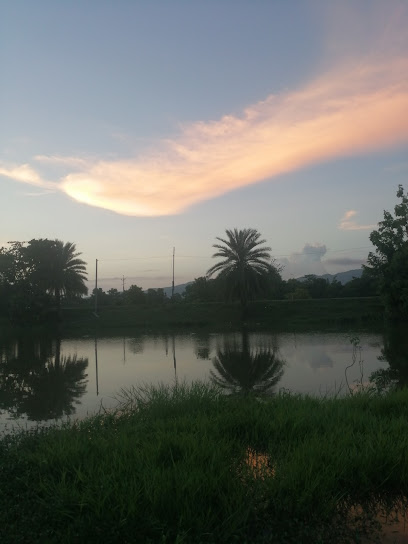
Satyabala Pond
Experience tranquility at Satyabala Pond in Howrah, a picturesque retreat surrounded by nature, perfect for relaxation and family outings.
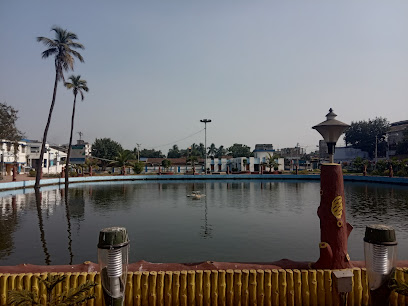
Ganga View Point
Discover tranquility and stunning views at Ganga View Point, a must-visit attraction in the heart of Kolkata, overlooking the sacred Ganges River.
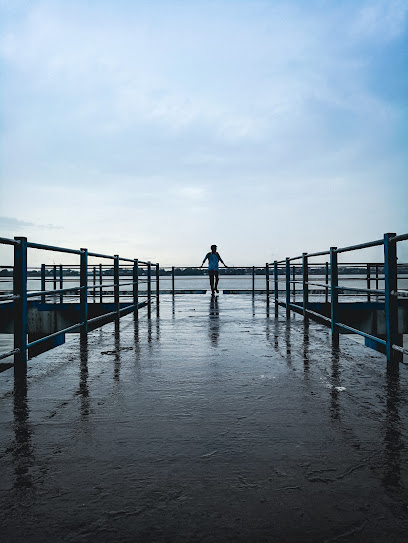
Graffiti lane
Discover the vibrant street art of Graffiti Lane in Howrah, where creativity meets culture in a stunning urban gallery.
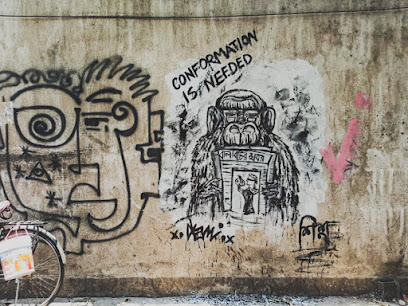
Jagarnath ghat Kolkata West Bengal flower market Kolkata
Discover the vibrant colors and fragrances of the Jagarnath Ghat Flower Market in Kolkata, a cultural gem offering a sensory experience like no other.
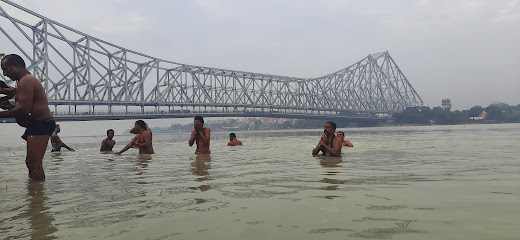
I Love Howrah
Explore the vibrant culture and rich heritage of Howrah, where every street tells a story and every meal is a culinary delight.
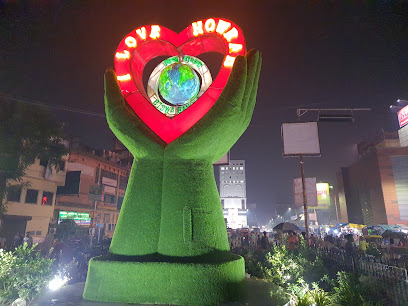
Howrah bridge view point
Experience the iconic Howrah Bridge from the stunning viewpoint in Kolkata, where history and vibrant local culture come alive.
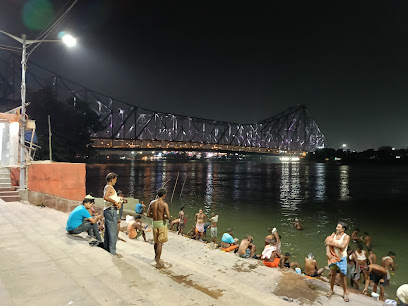
Chintamani Bathing ghat
Experience spiritual serenity at Chintamani Bathing Ghat, a tranquil retreat on the banks of the Ganges in Howrah, West Bengal.
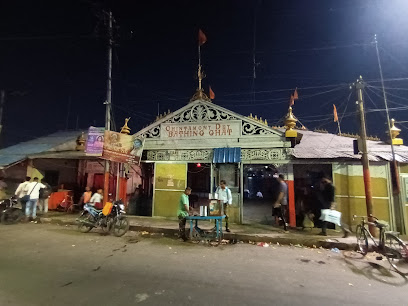
Viewing spot
Discover the serene beauty of Kolkata at the enchanting Viewing Spot along the Hooghly River, perfect for relaxation and picturesque moments.
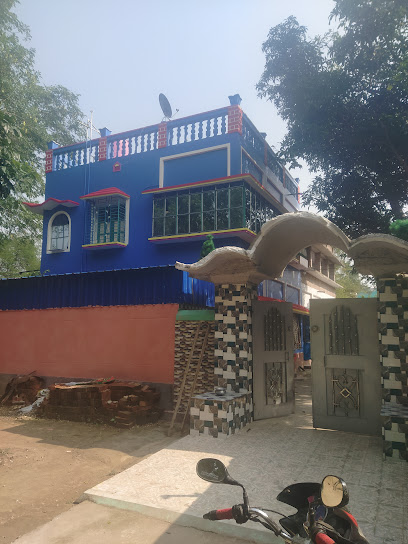
Essential places to dine
Penguin Restaurant
Experience authentic Indian flavors at Penguin Restaurant in Howrah—where family dining meets fast-food convenience.
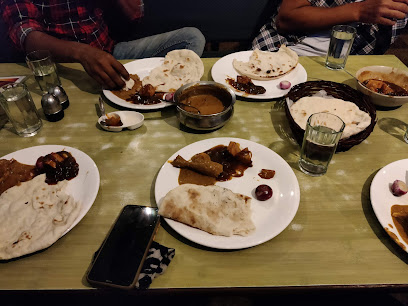
Khana Khazana
Experience the vibrant flavors of vegetarian cuisine at Khana Khazana in Howrah—your go-to destination for Chinese, Italian, and fast food delights.
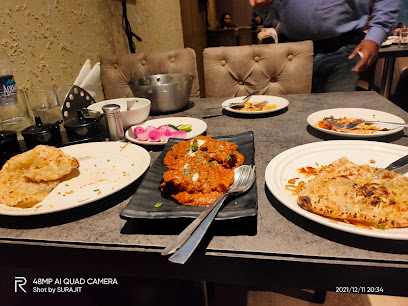
Skylark Restaurant
Experience the best of Chinese and Continental cuisine at Skylark Restaurant in Howrah – where flavor meets elegance.
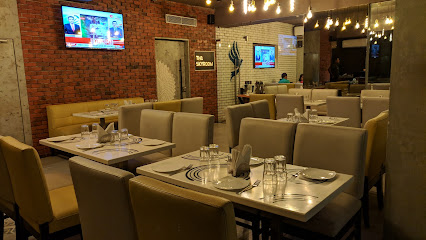
One by One
Experience the essence of non-vegetarian cuisine at One by One, where every dish tells a story of flavor and tradition.
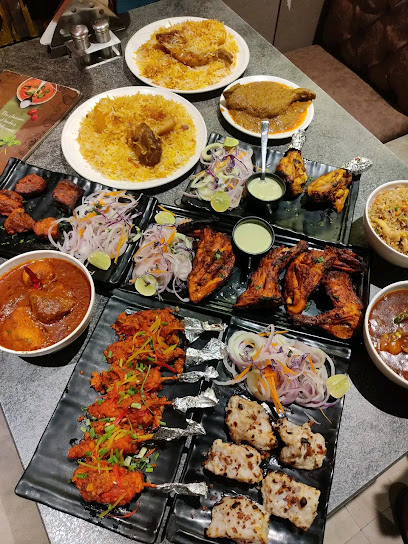
National Hotel & Restaurant
Experience authentic Mughlai cuisine at National Hotel & Restaurant in Howrah - where every dish tells a story of rich Indian heritage.
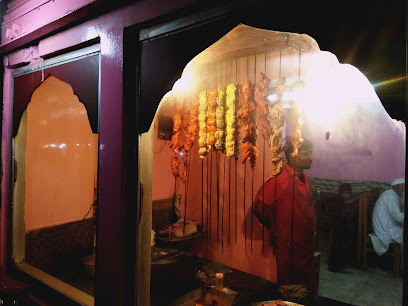
Jharna Cabin
Experience authentic Mughlai and country food at Jharna Cabin in Howrah – where every bite tells a story of rich flavors.
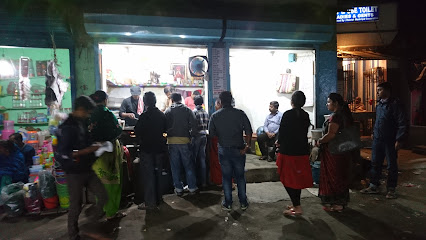
Twinkle Restaurant
Experience a delightful fusion of Indian and Chinese cuisines at Twinkle Restaurant in Howrah - where every meal is a celebration of flavor.
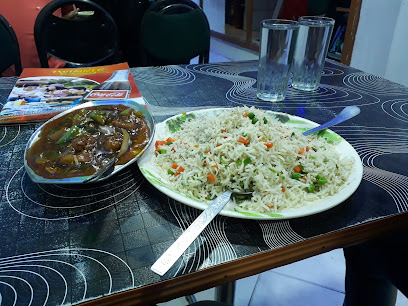
Dilli Khaas
Discover authentic Indian flavors at Dilli Khaas in Howrah's Platina Mall—where tradition meets contemporary dining.
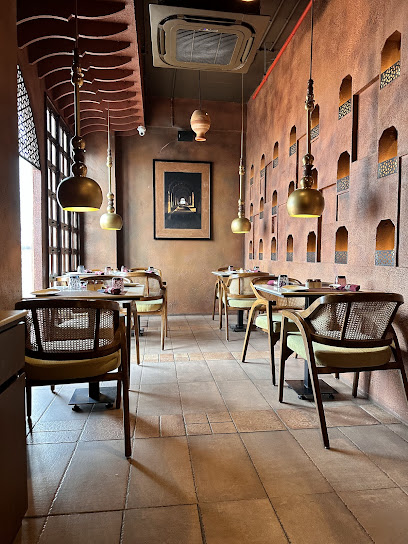
Best Indian Restaurant
Experience authentic Indian flavors at Kolkata's Best Indian Restaurant—where tradition meets taste in every dish.
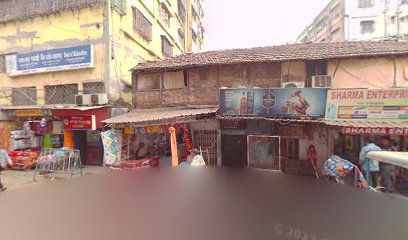
The Cloude Kitchen Howrah
Experience delightful family-friendly dining at The Cloude Kitchen in Howrah, offering diverse dishes and a warm atmosphere perfect for all ages.
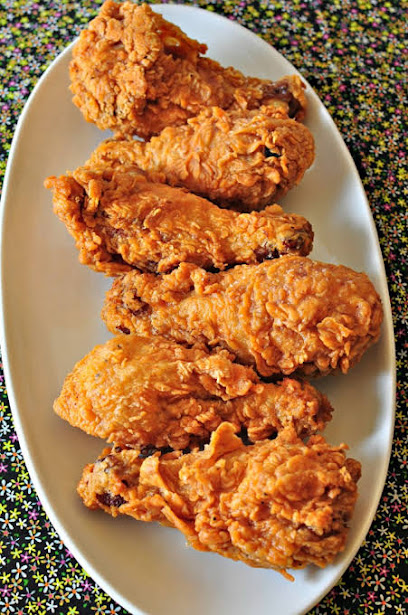
Markets, malls and hidden boutiques
Baazar Kolkata - Howrah
Discover the vibrant clothing styles at Baazar Kolkata - a must-visit shopping haven in Howrah, West Bengal, showcasing the local fashion scene.
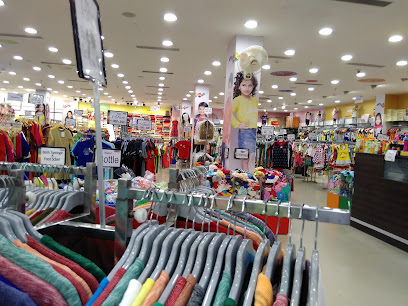
Shree Howrah Stores
Discover a vibrant shopping experience at Shree Howrah Stores, where traditional elegance meets modern fashion in the heart of Howrah.
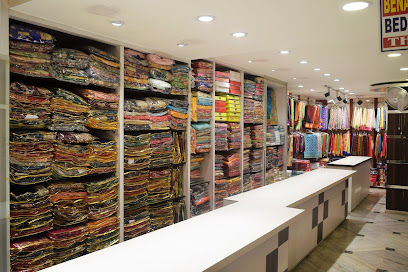
Givvet- Unique Personalized & Customised photo gifts online store
Discover Givvet, Howrah's premier gift shop for unique personalized photo gifts and artistic handicrafts that capture the essence of your memories.
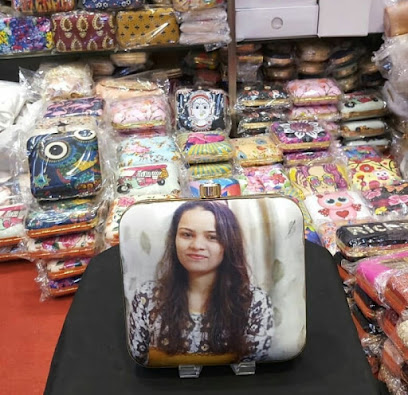
The Howrah Stores - Howrah Maidan
Explore a vibrant shopping destination in Howrah, offering a rich selection of traditional and contemporary clothing that reflects Indian culture.
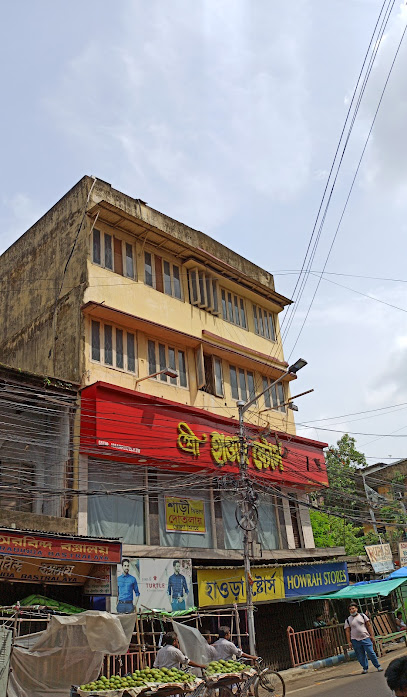
Arihant store
Discover unique gifts, chocolates, and more at Arihant Store in Howrah, a must-visit for every tourist seeking local treasures.
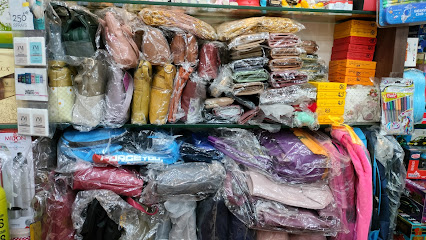
Brand shop
Discover a heavenly selection of confections in Howrah's charming Kadam Tala area, where every treat is a taste of tradition.
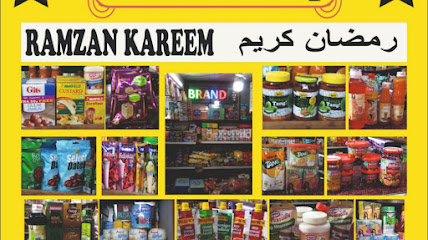
India's basket
Experience the vibrant shopping culture of Kolkata at India's Basket, where tradition meets modernity in a bustling mall atmosphere.

UNIQUE GIFT PLACE WHOLESALE&RETAILER
Explore exquisite glass artistry at Howrah's Unique Gift Place, the premier destination for handcrafted glass treasures and local craftsmanship.
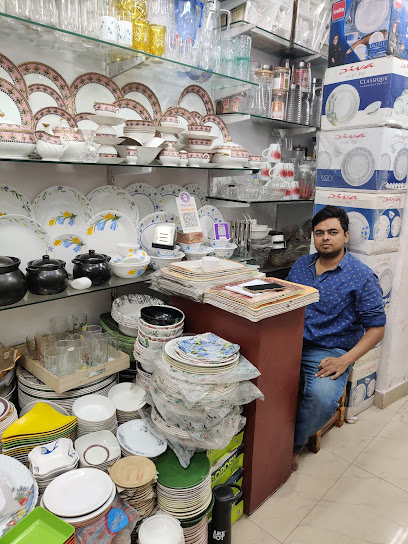
New Visit
Explore New Visit in Kolkata for a unique shopping experience, offering a blend of traditional and modern clothing styles in a vibrant market atmosphere.

Fancy
Discover the essence of West Bengal’s fashion at Fancy, Howrah’s premier clothing store, featuring stylish apparel and unique accessories for every taste.
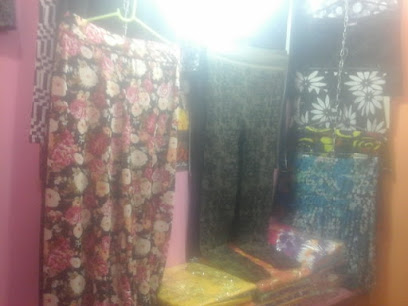
Essential bars & hidden hideouts
Green Valley
Experience the perfect blend of fine dining and vibrant nightlife at Green Valley, a premier bar and restaurant in Howrah.
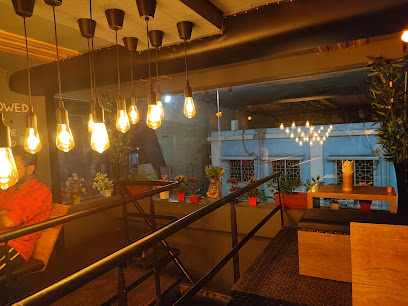
Executive Lounge
Experience comfort and culinary delights at the Executive Lounge in Howrah Railway Station, a serene retreat for weary travelers.
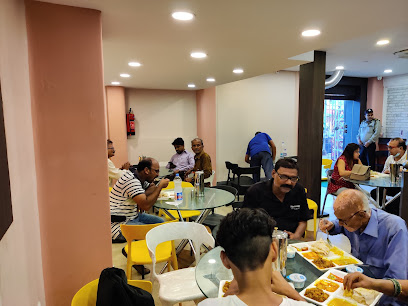
Railway Restaurant & Bar
Discover the vibrant culinary scene at Railway Restaurant & Bar in Howrah, where authentic Indian flavors meet a lively bar atmosphere.
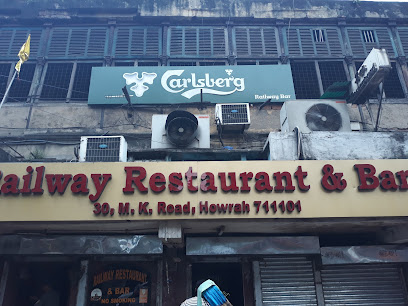
Utsav Restaurant Cum Bar
Discover the vibrant flavors of India at Utsav Restaurant Cum Bar, Howrah's premier spot for dining and drinks.
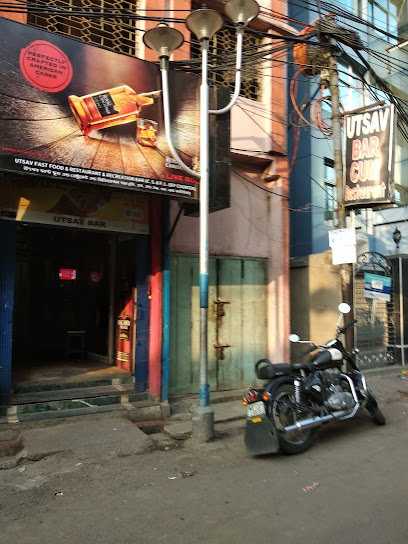
Garden Bar
Experience the vibrant nightlife at Garden Bar in Howrah, a perfect blend of local flavors and lively atmosphere for all visitors.
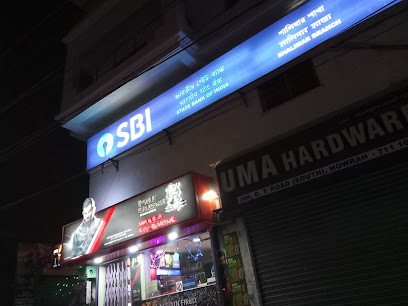
Gunjan Bar Subway Inn Restaurant
Experience delicious local and international cuisine at Gunjan Bar Subway Inn Restaurant, the perfect stop for travelers at Howrah Railway Station.
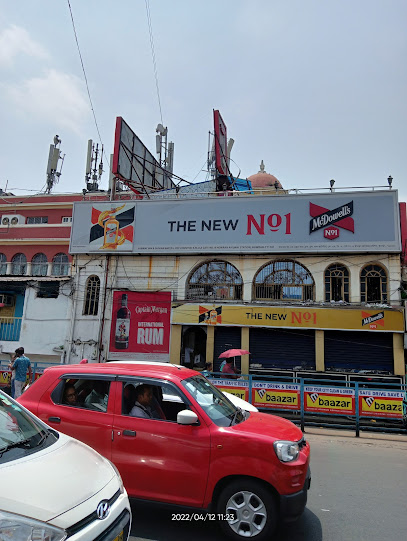
Angel Restaurant Cum Bar
Experience the vibrant culinary scene at Angel Restaurant Cum Bar in Howrah, where delicious food meets a lively atmosphere for an unforgettable night out.

The nightjar restaurant cum bar
Discover a vibrant blend of bar and restaurant at The Nightjar, where delightful cocktails and exquisite cuisine await in Howrah's Aurobindo Mall.
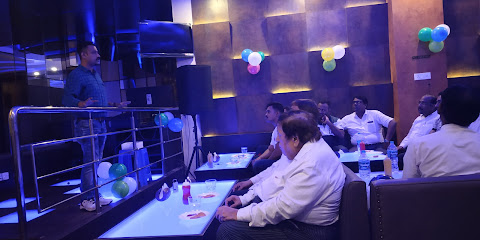
M/s. N. K. Bar
Discover the lively ambiance and diverse drink selection at M/s. N. K. Bar, a must-visit spot for nightlife enthusiasts in Kolkata.
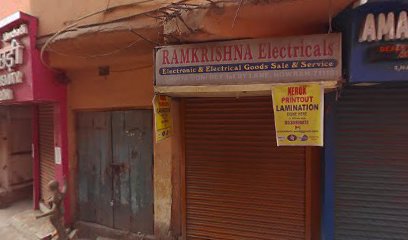
Royal Bar
Discover the charm of Royal Bar in Howrah, where great drinks meet a welcoming atmosphere for an unforgettable evening.
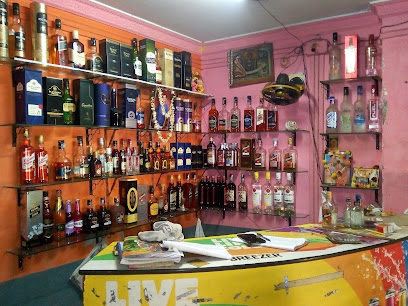
Local Phrases
-
- Helloনমস্কার
[Nomoshkar] - Goodbyeবিদায়
[Bidai] - Yesহ্যাঁ
[Hyām̐] - Noনা
[Nā] - Please/You're welcomeঅনুগ্রহ করুন / স্বাগতম
[Anugrah karuna / Swāgatama] - Thank youধন্যবাদ
[Dhanyabāda] - Excuse me/Sorryদুঃখিত
[Duḥkhita] - How are you?আপনি কেমন আছেন?
[Āpani kēmana āchēna?] - Fine. And you?ভালো। আর আপনি?
[Bhālō। Āra āpani?] - Do you speak English?আপনি ইংরাজি কথা বলেন?
[Āpani iṅrāji kathā balēna?] - I don't understandআমি বুঝতে পারছি না
[Āmi bujhate pārchhi nā]
- Helloনমস্কার
-
- I'd like to see the menu, pleaseদয়া করে মেনু দেখান
[Dayā karē mēnu dēkhāna] - I don't eat meatআমি মাংস খাই না
[Āmi māṅsa khāi nā] - Cheers!চিয়ার্স!
[Ci'ārs!] - I would like to pay, pleaseদয়া করে টাকা দিতে চাই
[Dayā karē ṭākā ditē chāi]
- I'd like to see the menu, pleaseদয়া করে মেনু দেখান
-
- Help!সাহায্য!
[Sāhāyya!] - Go away!চলে যাও!
[Calē yā'ō!] - Call the Police!পুলিশে ডাকুন!
[Puliśē ḍākuna!] - Call a doctor!ডাক্তার ডাকুন!
[Ḍāktāra ḍākuna!] - I'm lostআমি হারিয়ে গেছি
[Āmi hāriẏē gēchi] - I'm illআমি অসুস্থ
[Āmi asustha]
- Help!সাহায্য!
-
- I'd like to buy...আমি ... ক্রয় করতে চাই
[Āmi ... krôẏa karatē chai] - I'm just lookingআমি শুধু দেখছি
[Āmi śudhu dēkhaṣi] - How much is it?এটা কত টাকা?
[Ēṭā kata ṭākā?] - That's too expensiveএটা খুব বাজে
[Ēṭā khuba bājē] - Can you lower the price?দাম কমাতে পারবেন?
[Dāma kamātē pārabēn?]
- I'd like to buy...আমি ... ক্রয় করতে চাই
-
- What time is it?এখন কতটা বাজে?
[Ēkhana kataṭā bājē?] - It's one o'clockএকটা বাজে
[Ēkaṭā bājē] - Half past (10)দশের পর্ধেনা
[Daśēra pardhēnā] - Morningসকাল
[Sakāla] - Afternoonঅপরাহ্ন
[Aparāhna] - Eveningসন্ধ্যা
[Sōndhyā] - Yesterdayগতকাল
[Gatakāla] - Todayআজ
[Āja] - Tomorrowআগামীকাল
[Āgāmīkāla] - 1এক
[Ēka] - 2দুই
[Dui] - 3তিন
[Tina] - 4চার
[Cāra] - 5পাঁচ
[Pām̐ca] - 6ছয়
[Chôy'a] - 7সাত
[Sāta] - 8আট
[Āṭa] - 9নয়
[Nôẏa] - 10দশ
[Daśa]
- What time is it?এখন কতটা বাজে?
-
- Where's a/the...?এখানে ... কোথায়?
[Ēkhānē ... kōthāẏa?] - What's the address?ঠিকানা কি?
[Ṭhikānā ki?] - Can you show me (on the map)?মানচিত্রে দেখাতে পারবেন?
[Māncitrē dēkhātē pārabēn?] - When's the next (bus)?পরবর্তী ... কখন ...?
[Parabartī ... kōhana ...?] - A ticket (to ....)একটি টিকেট (... এ)
[Ēkaṭi ṭikēṭa (... ē)]
- Where's a/the...?এখানে ... কোথায়?
History of Howrah
-
Howrah, a city adjacent to Kolkata, has a rich historical background dating back to the 18th century. Initially a small village, it transformed into a bustling town with the establishment of the Howrah Bridge in 1943, which became a vital link between Howrah and Kolkata, symbolizing the region's industrial growth and urbanization.
-
Inaugurated in 1854, the Howrah Railway Station is one of the oldest and busiest railway stations in India. It played a crucial role during the British colonial era, facilitating trade and movement for both passengers and goods. The station's impressive Victorian architecture reflects the influence of British design and the importance of rail transport in the region's development.
-
Howrah is known for its vibrant cultural scene, particularly during festivals like Durga Puja and Kali Puja. The area is home to various communities, each contributing to its rich tapestry of traditions and celebrations. The famous Howrah Ghat, located along the Hooghly River, becomes a hub of activity during these festivities, showcasing local artistry and communal spirit.
-
The late 19th and early 20th centuries marked a significant industrial revolution in Howrah, with the establishment of numerous factories, shipyards, and manufacturing units. This economic boom attracted a workforce from various parts of India, making Howrah an industrial hub and contributing to the overall economic landscape of Kolkata.
-
Howrah boasts several architectural landmarks, including the iconic Howrah Bridge and the stunning Howrah Rajbari, a testament to the city's grandeur during the British Raj. The area's mix of colonial, Indo-Saracenic, and modern architecture provides insights into its historical evolution and cultural influences over the centuries.
Howrah Essentials
-
Howrah is well-connected to Kolkata and other parts of West Bengal. You can reach Howrah by taking the local train from any major station in Kolkata, including Howrah Station, which is one of the busiest railway stations in India. Buses and taxis are also available, with several routes connecting Howrah to various neighborhoods in Kolkata. Additionally, the Kolkata Metro has extended its services to Howrah, making it easier to travel to and from the area.
-
Howrah has an extensive public transportation system, including local trains, buses, and auto-rickshaws. The Howrah Station serves as a major hub for trains, while the local bus network connects various parts of Howrah. Auto-rickshaws are a convenient and inexpensive way to navigate the area. For a more leisurely experience, consider renting a bicycle, as there are designated cycling paths in some areas.
-
Howrah is generally safe for tourists, but like any urban area, it is wise to exercise caution. Areas near Howrah Station can be busy and crowded, making pickpocketing a risk. It is advisable to avoid walking alone at night in poorly lit areas. Stay vigilant in crowded places and keep your belongings secure.
-
In case of an emergency, dial 100 for police assistance or 108 for ambulance services. Howrah has several hospitals and clinics where you can seek medical attention. It's advisable to have travel insurance that covers medical emergencies, and keep a list of emergency contacts handy.
-
Fashion: Do wear comfortable, conservative clothing, especially when visiting religious sites. Don't wear revealing or overly casual attire in such places. Religion: Do show respect at temples and mosques by removing your shoes and covering your head if required. Don't take photographs in areas where it is forbidden. Public Transport: Do give up your seat to elderly or disabled passengers. Don't engage in loud conversations or eat on public transport. Greetings: Do greet locals with a smile and a nod. A handshake is also common among men. Eating & Drinking: Do try local street food but ensure it is freshly prepared. Don't drink tap water; opt for bottled water instead.
-
To experience Howrah like a local, visit the bustling Howrah Flower Market, one of the largest in India, where you can witness vibrant colors and local trade. Try local delicacies at street stalls, and don't miss the iconic Howrah Bridge, which is best enjoyed in the early morning or late evening when it's less crowded. Engaging with local vendors can provide insights into the culture and history of the area.
Nearby Cities to Howrah
-
Things To Do in Jessore
-
Things To Do in Khulna
-
Things To Do in Rajshahi
-
Things To Do in Barisal
-
Things To Do in Dhaka
-
Things To Do in Comilla
-
Things To Do in Ranchi
-
Things To Do in Agartala
-
Things To Do in Chittagong
-
Things To Do in Rangpur
-
Things To Do in Bhubaneswar
-
Things To Do in Cox's Bazar
-
Things To Do in Sylhet
-
Things To Do in Siliguri
-
Things To Do in Aizawl











